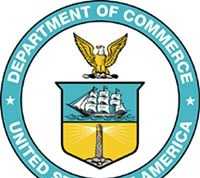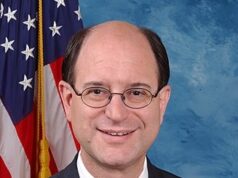PACE Energy Efficiency Mortgages Still Risky Despite New Department of Energy Guidelines
Stronger, Enforceable Protections Needed to Stop Predatory Loans
WASHINGTON – (RealEstateRama) — New best practices guidelines released today by the U.S. Department of Energy (DOE) for Property Assessed Clean Energy (PACE) mortgages could encourage states and localities to begin to address some of the growing problems and potential for abuse in this market. The new guidelines are a significant improvement from earlier guidelines but far stronger, enforceable protections are needed to ensure true energy savings and to protect homeowners, according to national and state advocates at the National Consumer Law Center (NCLC), Americans for Financial Reform, Consumer Federation of America, Bet Tzedek Legal Services, Public Counsel, Public Law Center, and Elder Law & Advocacy.

“Home energy efficiency is important, and well-designed programs like the federal Weatherization Assistance Program can be a cost-effective way to promote energy independence and help low-income homeowners save on energy bills. But PACE mortgages lack consumer protections, have few checks to ensure that energy savings are real and cost effective, and are inappropriate for homeowners who may be eligible for free or lower cost programs,” said Charlie Harak, senior energy attorney at the National Consumer Law Center.
“PACE mortgages may be the next wave of Wall Street-funded predatory lending,” said National Consumer Law Center Associate Director Lauren Saunders. “Through loopholes in state and federal law, PACE loans do not comply with ability-to-repay rules or other federal protections for mortgages or contractor fraud.”
“We are seeing aggressive door-to-door salesmen targeting seniors with false claims of savings and government subsidies,” said Leigh Ferrin, directing attorney at Public Law Center of Santa Ana, California.
“Older adults living on fixed incomes are duped and stuck with thousands of dollars a year in new property taxes for unnecessary so-called home improvements they were told would be provided to them for free through a government program, putting them at risk of foreclosure and the loss of homes in which they lived for years,” explained Dipti Singh, Directing Attorney of Impact Litigation at Bet Tzedek of Los Angeles, California. “PACE financing costs more than a home equity loan, and the tax lien can make it difficult to refinance or sell. The program is a risky deal with uncertain benefits for many homeowners,” added Charles Evans, Senior Staff Attorney at Public Counsel.
Currently, PACE loans are most prevalent in California and are being rolled out in Florida and Missouri, followed by other states. Where permitted under state and local law, PACE loans are marketed to homeowners through private contractors but are secured by property tax liens and are collected through the homeowners’ tax assessments. Interests in the homeowners’ payments are then sold to private companies that securitize and sell them on Wall Street. Because the loans become part of the tax assessment, lenders claim that the loans fall outside the rules adopted after the mortgage crisis and early waves of predatory lending.
“The Consumer Financial Protection Bureau should close the tax lien loophole so that PACE mortgages don’t evade mortgage protections. State and local PACE programs need to prevent contractor scams, predatory lending, and elder abuse,” Saunders urged. “PACE loans are marketed to investors as easily collectable because they can ‘quickly foreclose’ if a homeowner falls behind on payments without the protections of a typical mortgage,” said Brian Simmonds Marshall, policy counsel at Americans for Financial Reform. “At a minimum, PACE loans should have at least as strong of protections as conventional mortgages. States also need to adopt enforceable rules to protect homeowners from abusive sales practices.”
The tax liens also typically become a super-priority lien, ahead of the existing mortgage. For that reason, homeowners often have trouble refinancing or selling their home without paying off the lien in full. Mortgage bankers and realtors have also complained about the PACE program.
The DOE Final Guidelines recommend “best practices” for states and localities regarding program design, eligibility criteria for homeowners, and consumer protections. “States should require an energy audit to ensure that claims of energy savings are real, and lower income homeowners should be independently screened for whether they can obtain lower-cost or free energy efficient improvements from another program or a utility company before taking on a PACE loan,” said Harak. “Additionally, we need more investment in the existing federal Weatherization Assistance Program, which has a proven track record of saving money and energy.”
Related Links
Dept. of Energy Best Practice Guidelines for Residential PACE Financing: http://www.energy.gov/eere/slsc/downloads/updated-guidelines-residential-pace-financing-programs
National Consumer Law Center policy brief: PACE Energy Efficiency Loans: Good Intentions, Big Risks for Consumers, (Sept. 2016): http://www.nclc.org/issues/pace-energy-efficiency-loans.html
National Consumer Law Center comments to U.S. Department of Energy: supplemental comments (Oct. 18, 2016), http://bit.ly/2fhywm4 and original comments (Aug. 18, 2016): http://bit.ly/2ceBOJF.
Since 1969, the nonprofit National Consumer Law Center® (NCLC®) has used its expertise in consumer law and energy policy to work for consumer justice and economic security for low-income and other disadvantaged people, including older adults, in the United States.
Americans for Financial Reform is a coalition of more than 200 civil rights, consumer, labor, business, investor, faith-based, and civic and community groups working for a strong, stable, and ethical financial system.
Consumer Federation of America (CFA) is a nonprofit association of more than 250 consumer groups that was founded in 1968 to advance the consumer interest through research, advocacy, and education.
Founded in 1974, Bet Tzedek pursues equal justice for all by providing high-quality, free legal services to low-income, disabled, and elderly people of all racial and religious backgrounds. One of the nation’s premier public interest law firms, Bet Tzedek serves more than 20,000 people every year through direct legal services, impact litigation, community education and outreach, and legislative advocacy in the areas of employment rights, elder justice, caregiver law, Holocaust reparations, housing protection, human trafficking, public benefits, and consumer rights.
Public Counsel is the nation’s largest pro bono law firm. Founded in 1970, Public Counsel strives to foster economic justice by providing individuals and institutions in underserved communities with access to quality legal representation. Through a pro bono model that leverages the talents and dedication of thousands of attorney and law student volunteers, along with an in-house staff of more than 75 attorneys and social workers, Public Counsel annually assists more than 30,000 families, children, immigrants, veterans, and nonprofit organizations and addresses systemic poverty and civil rights issues through impact litigation and policy advocacy.
The Public Law Center, Orange County’s pro bono law firm, is committed to providing access to justice for low-income and vulnerable residents. Now in its 35th year of service, PLC’s 30 staff members work with over 1,600 Orange County lawyers, paralegals, law students and other volunteers annually to provide free civil legal services, including: counseling, individual representation, community education, and strategic litigation and advocacy to challenge societal injustices.
Elder Law & Advocacy is a caring group of experienced elder law staff and trained volunteers who serve over 8,000 seniors annually in both San Diego and Imperial Counties. We provide free and low-cost civil legal services, Medicare and Medicare related counseling and advocacy, referrals to community senior service providers and community education. The majority of services are offered at no-cost to qualifying seniors.
Contacts:
National Consumer Law Center: Jan Kruse ("> or 617.542.8010) or Lauren Saunders (">
or 202.595.7845)
Americans for Financial Reform: Jim Lardner ("> or 202.466.1854)
Consumer Federation of America: Barry Zigas ("> or 202.387.6121)
Bet Tzedek Legal Services: Allison Lee ("> or 323.939.0506)
Public Counsel: Charles Evans ("> or 213.385.2977 ext. 188)
Public Law Center: Leigh Ferrin ("> or 714.541.1010 ext. 290)
Elder Law & Advocacy: Carolyn Reilly ("> or 858.565.1392)
Media Contact
Jan Kruse, Director of Communications
(617) 542-8010 ext. 361
















